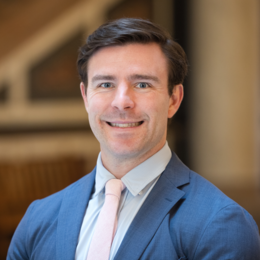The climate crisis facing birds is urgent and expanding renewable energy is one of the quickest and most effective ways to protect birds from climate change. But while we expand renewable energy, we must also prioritize the habitat birds need.
Last month, the Wisconsin Public Service Commission (PSC), a state board that oversees energy projects, approved the Badger Hollow Wind Project, a proposed utility-scale wind energy facility in Iowa and Grant counties, Wisconsin, that will generate up to 118 MW of clean energy.
Thanks to the engagement of Audubon and the voices of our members, this project was planned with birds in mind!
During the regulatory process, Audubon and its members spoke up to keep birds front and center as the state conducted its Environmental Assessment of the project. An environmental assessment evaluates the potential impacts of the project on natural resources, wildlife, and surrounding communities, and is required for every project. Thanks to the voices of our members, the Environmental Assessment effectively evaluated the potential impacts of the project on the environment, emphasized the need to protect state-listed grassland species and migration corridors, and reinforced best practices for habitat protection.
This type of analysis is important to ensure that projects, like this one, are planned with birds in mind. This project would be located on private farmland near the Pecatonica River Prairie Important Bird Area, one of Wisconsin’s last remaining intact grassland landscapes, which is critical for migratory and grassland birds like the Upland Sandpiper.
We know how and where these projects are built can have an impact on birds. Through the engagement of Audubon members, we can make sure that conservation of vulnerable species and high conservation areas for birds are prioritized.
This project demonstrates how we can work collaboratively to ensure that clean energy projects are planned with birds and people in mind to ensure a healthier future for all that depend on Wisconsin, our region, and our planet.





